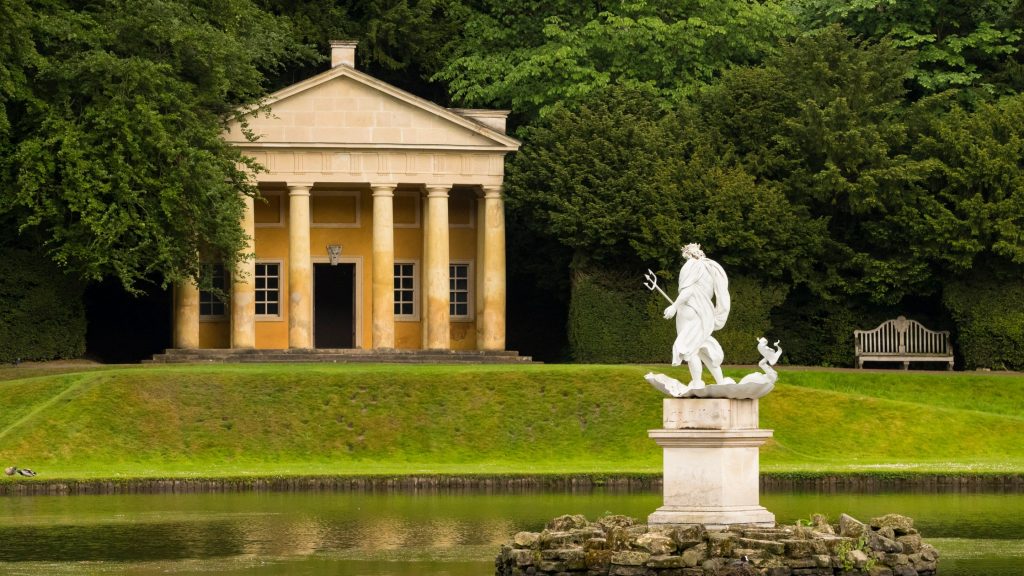The Gardens Trust has created a seven part series on Tuesdays, beginning September 12, to mark 50 years of UNESCO World Heritage, £5 each or all 7 for £28. Starting with an overview of World Heritage values and the changing nature of the UK list, the series will aim to enthuse people about individual sites around Great Britain, highlighting what makes each one exceptional, the advantages and challenges of being inscribed on the list, and the issues around sustainable future management of these global assets. Attendees will be sent a Zoom link 2 days prior to the start of the talk, and again a few hours before the talk. A link to the recorded session (available for 1 week) will be sent shortly afterwards. Register for the complete series HERE, or follow the links on that page to sign up for individual sessions.
Week Six covers Studley Royal Park. Studley Royal Park, including the ruins of Fountains Abbey, became one of the first places in the UK to be named a UNESCO World Heritage Site in 1986. It owes its originality and striking beauty to the fact that a humanized landscape was created around the largest medieval ruins in the United Kingdom. The use of these features, combined with the planning of the water garden itself, is a true masterpiece of human creative genius. The water garden is one of the few great 18th-century gardens to have survived well in its original form.
The ruins of Fountains Abbey, the Jacobean Fountains Hall and Burges’s miniature neo-Gothic masterpiece St Mary’s Church unite with the water gardens and deer park to form one harmonious whole. Together, they illustrate the power of medieval monasticism and the taste and wealth of the European upper classes in the 18th century.
Mark Newman MA MCIfA FSA has been the National Trust’s Archaeologist since 1988. A graduate of Birmingham University, he provides archaeological advice and support to around 75 NT properties in Yorkshire and the North-East. He is author of Wonder of the North (NT/Boydell, 2015), a definitive history of the estate (and is working on a new edition).
Sarah France has been World Heritage Coordinator at Fountains Abbey and Studley Royal since 2010. Before that Sarah spent almost 20 years working in planning and heritage for National Parks across the UK. Her current role is to coordinate delivery of the World Heritage Management Plan and deliver conservation projects. Recently she worked with Nidderdale AONB and other partners to develop the Skell Valley Project and the successful bid to the National Lottery Heritage Fund for a £1.4m grant.

